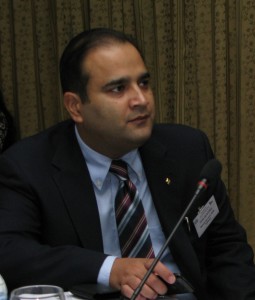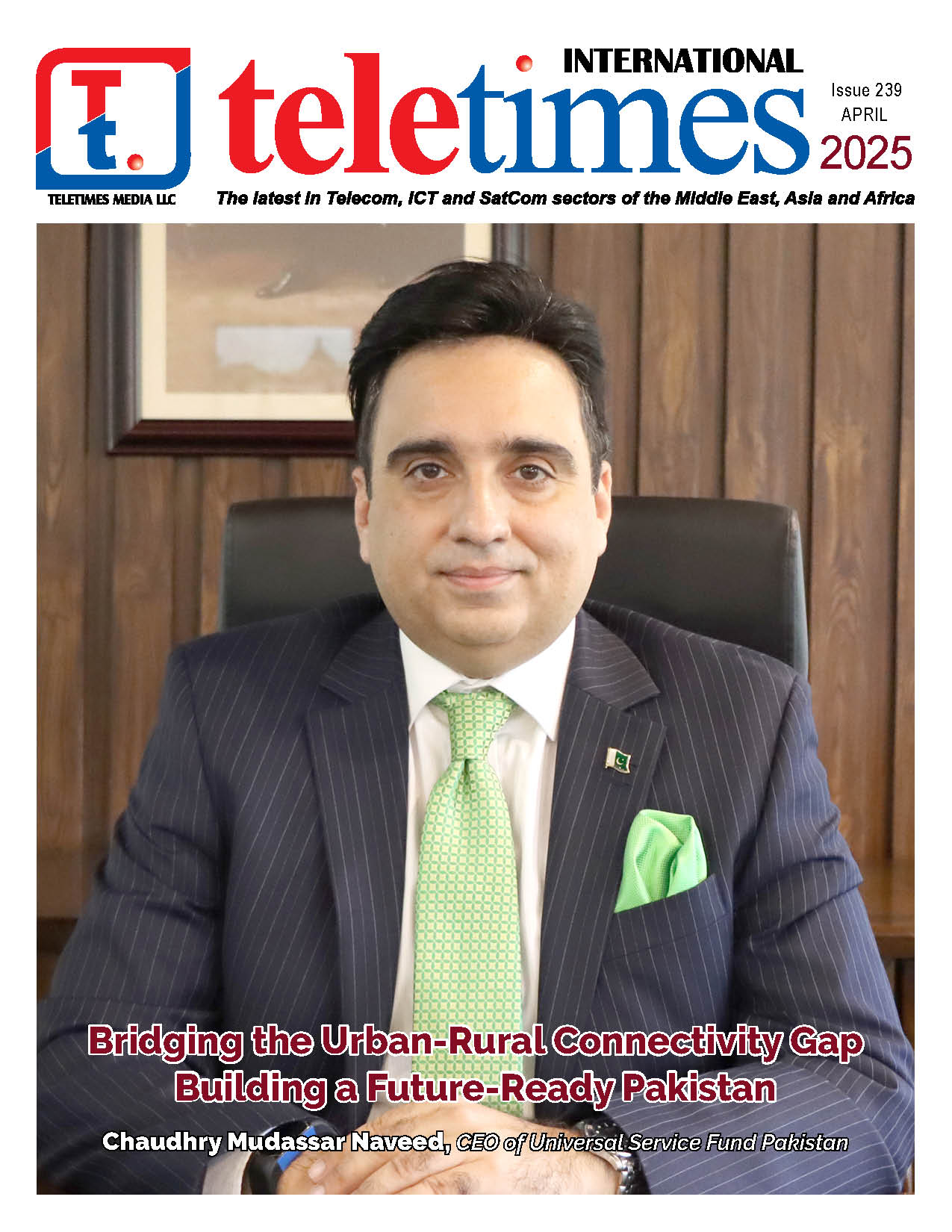The 2nd SATRC (South Asian Telecommunication Regulator’s Council) Workshop on Policy and Regulation was  held from 3-5 May 2011, in Male’, Republic of Maldives. The workshop was organized by the Asia Pacific Telecommunity and hosted by the Communications Authority of Maldives (CAM). Delegations from Pakistan, Sri Lanka, Maldives, Bangladesh, Bhutan, Nepal, Afghanistan and India attended the workshop.
held from 3-5 May 2011, in Male’, Republic of Maldives. The workshop was organized by the Asia Pacific Telecommunity and hosted by the Communications Authority of Maldives (CAM). Delegations from Pakistan, Sri Lanka, Maldives, Bangladesh, Bhutan, Nepal, Afghanistan and India attended the workshop.
The SATRC Workshop on Policy and Regulation is a part of the implementation of SATRC Action plan Phase III which was adopted at the 11th SATRC meeting in 2009 in Colombo, Sri Lanka. A number of issues related to Policy and Regulation in the SATRC region discussed in the workshop. The activities of the workshop assisted the Regulatory bodies of the SATRC member countries in their human resource development needs for acquiring knowledge and skills in key policy and regulatory issues of the region. It provided an excellent opportunity to network and exchange views and experiences among the regulators of the SATRC member country.
Mr. Toshiyuki Yamada, Secretary General, Asia Pacific Telecommunity, welcomed delegates and thanked them for attending the Workshop. He expressed his deep appreciation and sincerest gratitude to Communications Authority of Maldives (CAM) for providing excellent hosting facilities. In his welcome remarks, Mr. Yamada emphasized on the Action plan phase III importance and its implementation in the relevant sectors to get the expected outcomes. He urged the delegates for the development of the policies and Regulatory laws such that the role of the ICT sector as solution provider in the real life problems of the rural and urban areas becomes prominent and efficient. Mr. Yamada mentioned that SATRC is a platform for regulators in South Asia to discuss, network and cooperate on important telecommunication and ICT related issues.He wished that good efforts would make SATRC more productive with tangible outputs for the best of the region.
As a salient participant of the SATRC, Pakistan Telecommunication Authority proposed the vivid conviction in the Facilitation of Broadband in SATRC countries. The session held at SATRC Workshop discussed the matters related to the Facilitation of Broadband in South Asian countries with intention of Policy perspective. The representatives from the Communication and Media Authority Bhutan deliberated the ideas regarding Strategies for developing countries to develop broadband Eco-System. Pakistan Telecommunication Authority was represented by Mr. Zafar Iqbal, Joint Secretary (Administration), Ministry of Information Technology (MoIT) and Mr. Muhammad Amir Malik, Director (ICT), Pakistan Telecommunication Authority. Delegation from PTA highlighted the most striking and intrinsic fact in the Facilitation of Broadband in SATRC countries. The topic named Universal service fund and Development of Broadband in Rural Areas, Pakistan Prospective elaborate the theme that the financial problems for the development of infrastructure of the Broadband services in the rural areas are very radical and of very keen consideration.
Mr. Amir Malik, on the behalf of Pakistan Telecommunication Authority, emphasized on the augmentation of rural areas of the developing countries like Pakistan and other in the South Asia. The major problems in the Facilitation of the Broadband in the rural areas contain many hindrances but the key factor is the financial problem. The feasibility for the people of the rural areas to acquire the services of the Broadband is almost not convincing. Furthermore, the establishment of the infrastructure of ICT in the remote rural areas is expensive and need major investment. In this significant discussion, he also elaborated the role of Universal Service Fund for upgrading the current ICT sector, especially in Pakistan, and the rural development programs so that, people become able to get ICT benefits for the sake of goodness of their lives.
While discussing the Authority role in the development of the ICT sector, Mr. Amir Malik expressed his suggestions that a sound regulatory creating an enabling environment for innovation, investment and competition is essential for the roll out of efficient ICT.
He added that access to broadband allows the delivery of more effective healthcare, better education, environmental sustainability, more efficient transportation services, smarter and more economical energy supplies, and many new applications and services.
He commented that for ICT industry, good regulation breeds confidence and stability. It reduces risk and encourages investment in ICT infrastructure, rewards competition, and encourages innovation. At the same time, it offers consumers greater choice, lower costs, a transparent market place and a fair system for resolving disputes. He hoped that SATRC would be able to help the regulators to provide good regulatory environments in SATRC member countries.
In this very session, representative from Bangladesh beamed the Role of Private Sector in Policy formulation. The enlightened features of this discussion were to bring the private sector into the government policy making hub. Despite of consequences, the key point was to make the ICT sector growing with a consensus between the government and private sector. Later on, a session on the Facilitation of Broadband in SATRC countries was held with an intention of Regulatory Perspective. In this session delegation by the Authorities of Maldives, Nepal and India presented their aspects and recommendations.
On the second day, a session held on a very importance prospective. The session, chaired by Mr. Muhammad Amir Malik, Director (ICT), Pakistan Telecommunication Authority, discussed the significance of Critical Information Infrastructure Protection (CIIP) and Cybersecurity Issue. While explaining the Cybersecurity in the perspective of SATRC Members, the representative from Telecommunication Regulatory Commission, Sri Lanka emphasized on the Challenges and Opportunities and put forward his recommendations as well.
Intrusion of Privacy in the public networks has become a serious cause of concern. IP networks have open structure and hence are vulnerable. Large number of incidences of cyber attacks such as denial of service, man in the middle, identity theft, spoofing and spam has to be effectively handled. Progressive transition from telecom traditional network to IP networks in converged era will form backbone for critical information infrastructure. The protection of such infrastructure is crucial and a challenge. Therefore, necessary policy and regulatory framework has to be put in place to secure critical information infrastructure. The Principle and the regulatory approaches in the prospective of Critical Information Infrastructure Protection are of vital essence for any country from the security point of view.
The key issues like Secrecy, Authentication, Non-repudiation, Integrity Control and Child Abuse were discussed in the session. Cyber intrusions like Attacks on Network, Attacks on Services, Malicious Codes, Viruses, Malware and phishing were also under the spotlight in the session. Furthermore, Members from National Center for Information Technology, Maldives highlighted the Government infrastructure and approaches in the Cyber Information Infrastructure Protection Issues. The session ended with the purposeful discussion on the key factors of CIIP and Cybersecurity.
The workshops under the shade of SATRC Umbrella are of crucial Significance. The Communication Regulator Authority plays a crucial role in the growth of Communication technology in the country. SATRC provides a platform for the South Asian countries to put forward their views, share their current codifications, network their efforts and cumulate their approaches for the betterment of the South Asian region.
April 28, 2025











